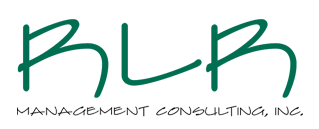Are you banking Marijuana Related Businesses (MRB’s)? How do you know?
RLR Management Consulting, Inc.
If your bank has decided you will not be banking Marijuana Related Businesses (MRB’s), you may want to think again. Your bank could already be doing business with an MRB …
Bankers typically view marijuana related businesses as cultivators, processors, testing facilities, packagers, transporters and dispensaries. But what about other individuals or companies that are indirectly connected to marijuana-related businesses, such as equipment suppliers, payment processors, consultants, landlords, real estate professionals and advisors? There is no simple answer. If a significant portion of the customer’s revenue is dependent on the industry, it could be considered an MRB. There are generally accepted tier classifications of marijuana related businesses:
Tier I – Plant touching
Tier II – Businesses directly supporting or those whose primary customers are Tier I MRB’s
Tier III – Those that have incidental businesses with Tier I and Tier II MRB’s
Typically Tier I MRB’s are licensed by the state. Tier II and Tier III may not be. Think about this: A dear friend of ours works in the commercial real estate business. She has made a good living selling commercial real estate and is now the “leading source of cannabis real estate” as stated on her website. She has maintained a bank account with the same bank for many years with large transactions of all sorts into and out of her account. Is our friend an MRB? How do you, as a bank, know or make that determination?
Obviously, when you, as a bank are setting up new accounts, you ask the question “Do you derive revenues from marijuana related activity?”. What do you do to determine whether your current customers are MRBs?
First, in the on-going due diligence of your accounts, ask your customers the same question, “Do you derive revenues from marijuana related activity? Second, see if your state publishes their marijuana licenses. If so, obtain a list and run it against your CIF to see if you have any matches. Thirdly, monitor cash balances – customers can tell you many things pertaining to large deposits, but balances can be checked. Fourth, consider performing site visits on anything that appears suspect. Lastly, cash that has been around marijuana has a distinctive odor and is usually very easy to spot (or smell).
It is not always easy to determine if your bank is doing business with an MRB. Ensure that your bank is doing everything it can to identify the MRB companies, then follow the FinCEN guidance regarding suspicious activity report filings when transacting with these companies.
